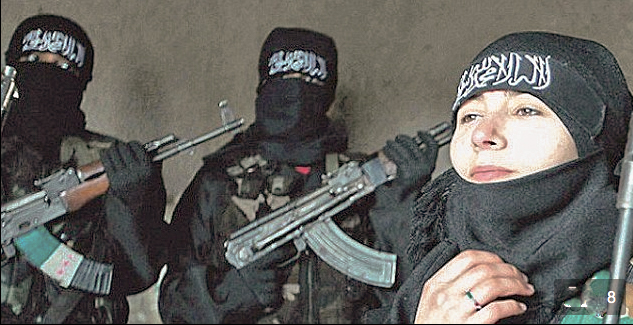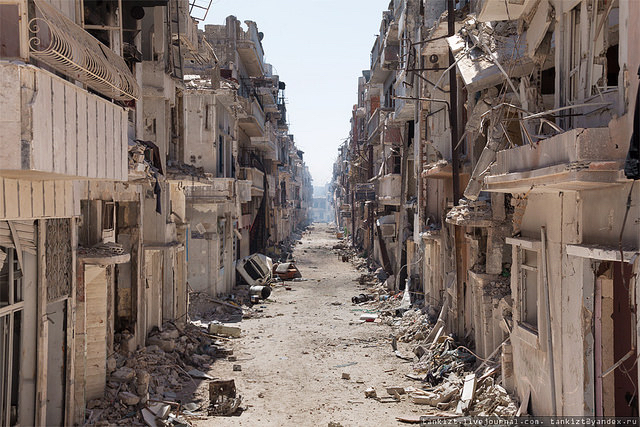If you drive towards the eastern part of Georgia, to the Chechen border, in Akhmeta, you’ll find a group of picturesque villages, home to the Kists, an ethnic group that traces its origins back to the Chechens of the northern Caucasus.
You could hardly call this place destitute by looking at the well-kept houses and large front yards. Almost everyone here owns cattle and sheep, and makes the most exquisite cheese, which is available throughout Georgia. Nobody looks hungry.
But everyone is deeply concerned with having nothing to do, except discuss current events. The area is flooded with young children. The birth rate has jumped significantly, and schools are practically full.
The local kids are bubbly and eager to talk. They tell me they love Superman, candy and everyone wants to ride a bike. The majority of the children are redheaded, even blonde haired and blue-eyed, characteristic features for the Vainakh tribes prevalent in this region.
It’s hard to imagine that someone from this breathtaking area would leave to fight in a godforsaken place like Syria, let alone to join ISIS. But it’s hard to find a job here, and unemployment is high. Unsurprisingly, there are over a hundred locals fighting in Syria. Several already died, and loved ones mourn them in absentia.
One such family member, of the fallen eighteen-year-old Omar Kushtanashvili, told me that his family thought that he was in Turkey working, like many families here think their sons are. But in reality, they are fighting in Syria.
The ginger bearded general is on top of it all, the local Tarkhan Batirashvili, who renamed himself Omar al-Shishani, one of the most feared jihadists in the Middle East. Al-Shishani, is a commander in ISIS.
When I met his family member a while ago and some of the locals who knew him, the reasons behind his departure remained unexplained. The young man was trained in the Georgian army, and even fought in the 2008 Russia-Georgia war. His short term in jail may have something to do with him turning into a radical. But what about the others?
As if the exodus of young, healthy men out of the region was not enough, recent reports of two local schoolboys, aged 16 and 18, trying to reach Syria to join ISIS shook the small area. The kids are believed to be in Syria already, according to the Kakheti information agency, which cites the ISIS blog, where pictures of them giving an oath have been published.
The region is run by the Council of Elders, which gather once a month and are treated with the deep respect amongst the population. As a young 19 year-old local tells me, if a crime is committed, the Elders decide on a judgment first. If, of course, the sides do not come to an agreement, constitutional law takes over.
These people have been practicing their rule of law for centuries, as this always been a land of deep traditionalism, strong families and a perfect balance between religion and the state. People here are free; it’s unimaginable to see this area under strict Sharia law, something both the elderly, and youngsters agree on.
Shevardnadze’s rule period during the 1990s was very hard here; in fact, messy and full of criminals, as Khaso Khangoshvili tells me. During this period, the area was on the verge of a crisis. It was uncontrollable and many people left. Many Chechen refugees came here subsequently, escaping their bloody war with Russia, and many have since returned home.
Pankisi Gorge has been a centre of conflict between Russia and Georgia for decades.
And it is clear the region won’t find peace for more times to come. The Georgian government doesn’t have a clear vision or plan of how to stop young boys fleeing, as it is becoming clear that more are set to follow the trend.
Not a single young man in the street, schools or families, nor the local Imam is willing to explain how such a situation could evolve in such a liberal area, where not even headscarves are mandatory, except for the married.
Georgia’s Prime Minister Iraklion Garibashvili has met with members of the Council of Elders of the Pankisi Gorge, who mostly consider the boys who left for Syria a delusional crowd. No one is confident where they are recruited, in the capital Tbilisi, as rumors have it, or on the Internet.
The government also took drastic legislative measures to prevent others from going to Syria.
George Gvimradze, Senior Scholar at the Strategic Research Center said in an interview that there opinion is divided between youth and the middle aged, Salafists, and Sufis.
“The most serious problem is the lack of jobs. Those boys need to be given right direction. The government has serious work to do in order to avoid further escalations.”
While the government is not very concerned so far, saying that 2-3 young boys won’t be a big problem, while EU countries contribute more, it still may not be the right approach.
Radicalism is indeed the problem for always tolerant Georgia, where such religious extremism was virtually unheard of. Where several religions co-existed for centuries in harmony. “The danger is now global now, since their actions expanded beyond Syria, their target is all of us,” Gvimradze said.





